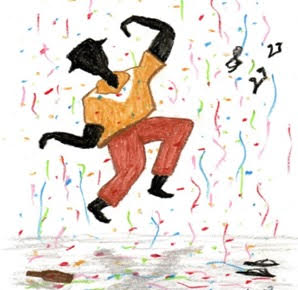Yogatic
Samba Gymnastics At The Black Body Party
Keywords:
Culture; Samba; Iogática.Abstract
Being in a state of samba is immersing yourself in the language of the Orixás, a gymnastics that brings together a world system codified by samba dancers [philosophers] and prayer women [masters] of the cure for great health already pointed out by the philosopher Nietsche and Nise da Silveira, when thinking about a inadequate reason that needs to samba to feel the ecologies of affections, with the samba player having a body moved by sensations in the space of samba. Each sambante carries within it the meaning of a circle where one shares in the educational action of the first experience, or better yet, in yoga. The invitation to affections evokes the sambantes to meet the creative forces to materialize the axé in the human by becoming human, too human, it is about saying that in the vital action of exercising yoga, the vital elā of the need to humanize ourselves passes through via axé, this inherent principle of life.
References
Job, N. (2024). Livro na borogodança. Rio de Janeiro: Fólio Digital.
Silva, W. L. (Org.) (2015). Sambo, Logo Penso: afroperspectivas filosóficas para pensar o samba. Rio de Janeiro: Hexis/Fundação Biblioteca Nacional. Link
Silva, W. L. (2019). Geosambalidade: por uma filosofia bélica no espaço racial em movimento. Tese, Doutorado em Política e Planejamento Urbano e Regional, Universidade Federal do Rio de Janeiro, Brasil.
Downloads
Published
How to Cite
Issue
Section
License
Autores que publicam nesta revista concordam com os seguintes termos:
Os Autores mantém os direitos autorais e concedem à revista o direito de primeira publicação, com o trabalho simultaneamente licenciado sob a Creative Commons Attribution License que permitindo o compartilhamento do trabalho com reconhecimento da autoria do trabalho e publicação inicial nesta revista.
Autores têm autorização para assumir contratos adicionais separadamente, para distribuição não-exclusiva da versão do trabalho publicada nesta revista (ex.: publicar em repositório institucional ou como capítulo de livro), com reconhecimento de autoria e publicação inicial nesta revista.
Autores têm permissão e são estimulados a publicar e distribuir seu trabalho online (ex.: em repositórios institucionais ou na sua página pessoal) a qualquer ponto antes ou durante o processo editorial, já que isso pode gerar alterações produtivas, bem como aumentar o impacto e a citação do trabalho publicado (Veja O Efeito do Acesso Livre).








